If you share your precious living space with a partner, you probably know that to keep the peace, it’s best to divide the housework equally so that one of you doesn’t accidentally fall victim to an unfair division of household labor. But what happens if certain circumstances change? Does this agreement require altering too?
When redditor’s Choresforpay partner considered taking time off work, they were quickly presented with one condition. They were told that if they wanted to move in with them and quit their job, they would have to do most of the housework, which amounted to about 40 hours a week. Unhappy with this ultimatum, the partner refused to be their ‘servant’, causing AITAH drama to ensue.
Keeping a fair division of household chores is key to a healthy relationship

Image credits: MART PRODUCTION (not the actual photo)
However, this couple couldn’t agree on it, causing drama to ensue
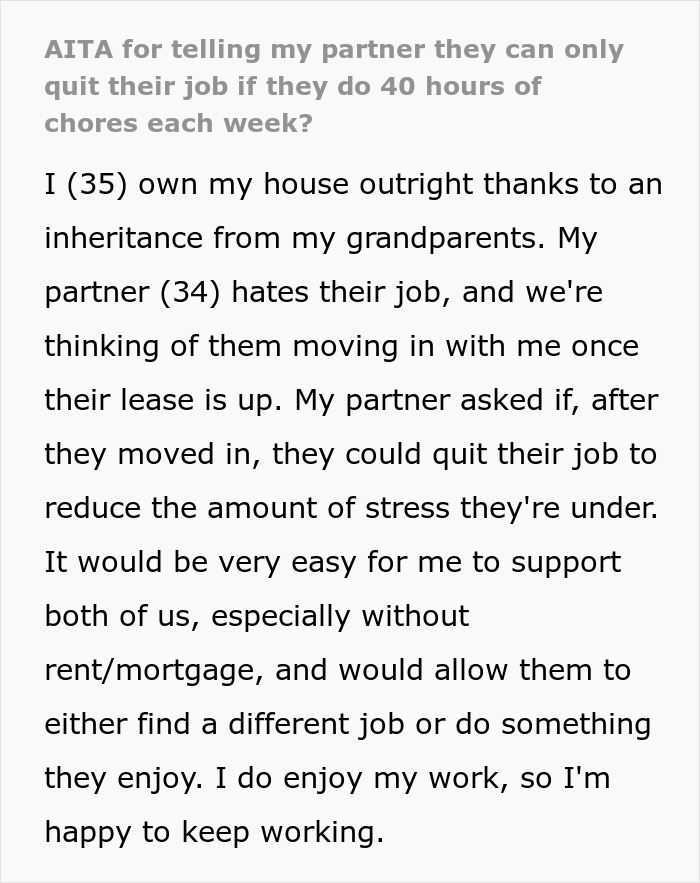
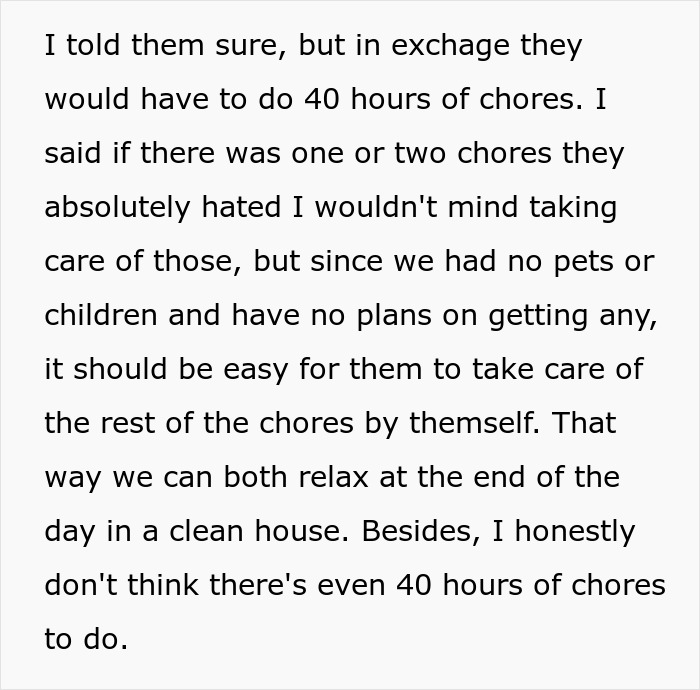

Image credits: Vitaly Gariev (not the actual photo)
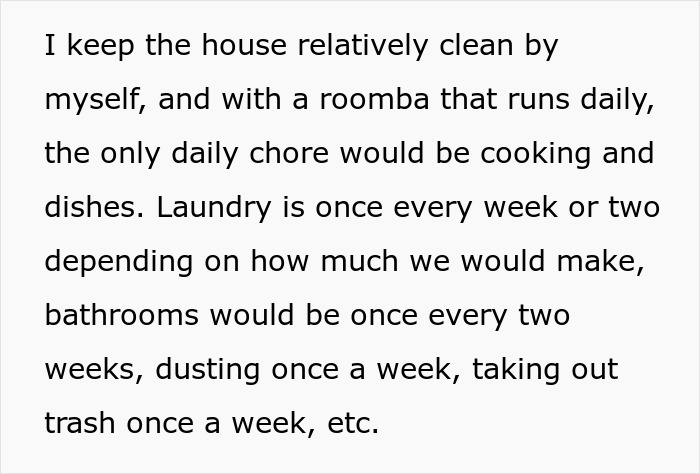
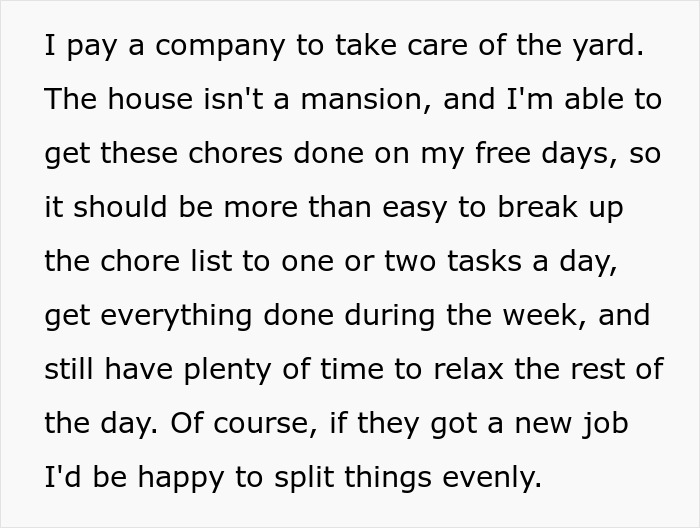
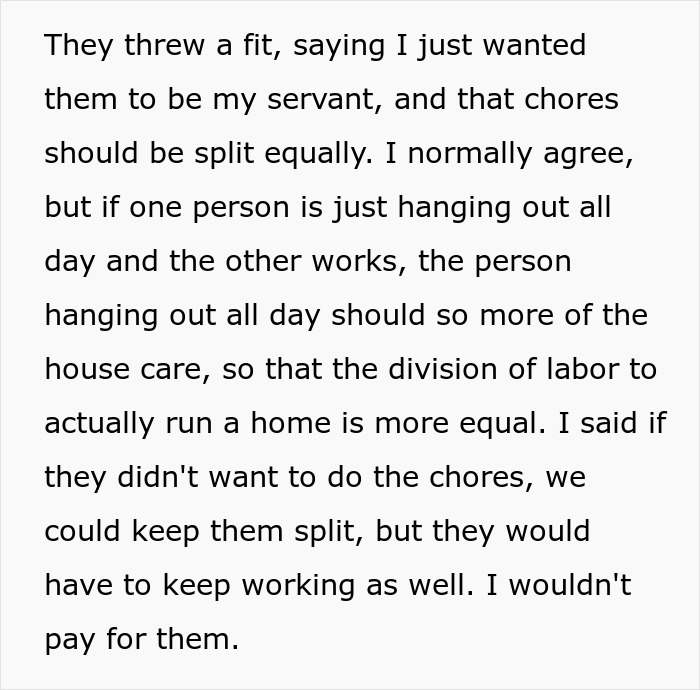

Image credits: Choresforpay
Fairly dividing house chores can help reduce tension and give back precious time to members of the household
Just like the couple in this story, many struggle to split chores equally, as it was found that women do 36 hours of household tasks per week, nine hours more than men, including doing the laundry, cleaning, and cooking.
However, it’s possible to divide domestic tasks fairly, which can help reduce tension at home and give back precious time to each member of the household.
Marriage and family therapist Justin Maxine explains, “Chores are a small yet vital way that couples show care for one another, their home, and their relationship. If couples are not on the same page about these tasks, one partner will likely do the brunt of the chores and feel resentful or as though their partner doesn’t care about them.”
One way to start splitting chores equally is to have a candid conversation about partners’ domestic contributions and reevaluate what matters in their homes. Attorney and author Eve Rodsky and lifestyle coach Jacqueline Misla say that the first thing you want to do is make a list of every household task. It will help both parties understand the full extent of their responsibilities and hopefully encourage them to help balance the workload.
Once it’s drafted up, go through the list and note who’s typically responsible for each task. This allows partners to see that, for example, one person is doing more than the other expected. Then try prioritizing things that should be done daily and cutting out any unnecessary tasks, like making the bed, if you both don’t feel the need to.
What’s left to do is assign the chores and set clear expectations of how and when they should be completed. And most importantly, fully own your duties! Don’t expect the other person to do something if you’re slacking.
Certain circumstances should be considered
Of course, certain circumstances might be considered. Is your partner having more tasks at work than usual? Perhaps they need a bit of a break because their friends are visiting. “Set regular check-in times to walk through your weekly schedule and reassign chores and duties where necessary,” says Rodsky.
In the meantime, continue doing what you enjoy, whether that is cooking dinner or folding laundry in front of the television. If one task is too burdensome, try to find a way to divide it up, which could mean taking turns or agreeing to do it together.
Surprisingly, this seems to be more common knowledge for same-gender partners, who, according to research, are more successful at dividing up their tasks. It was found that same-sex couples tend to share more duties and assign various chores based on personal preference. Meanwhile, straight couples tend to slip back into traditional gender roles, with women being more responsible for household chores.
One explanation for this may stem from the fact that same-sex partners have already broken out of the ‘traditional’ family structure, allowing them to be more creative when it comes to domestic chores. Diversity strategy leader Jennifer Allyn believes that the increasing visibility of same-gender couples and their housework choices could show same-sex partners new ways to divide up household responsibilities.
Commenters titled the author as not wrong
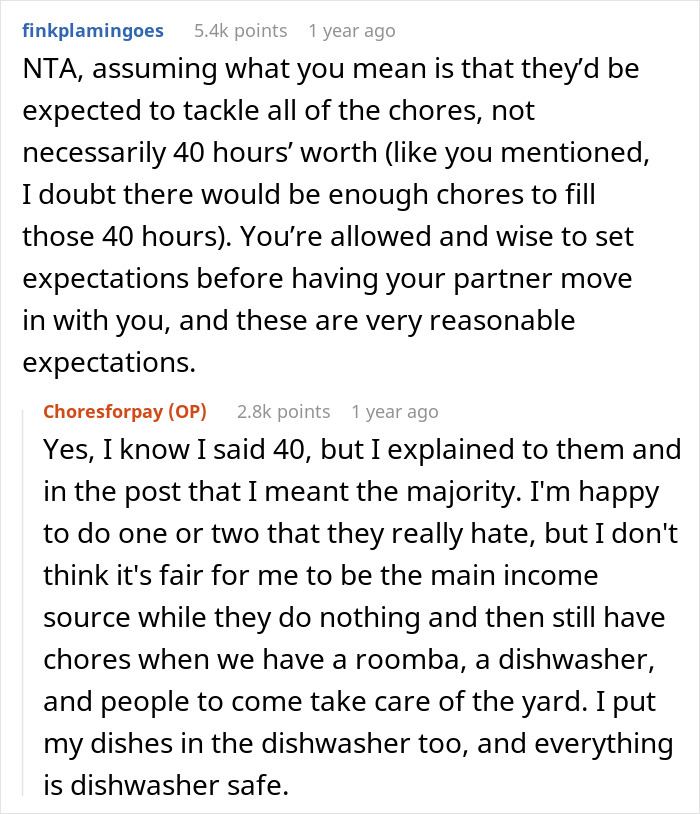


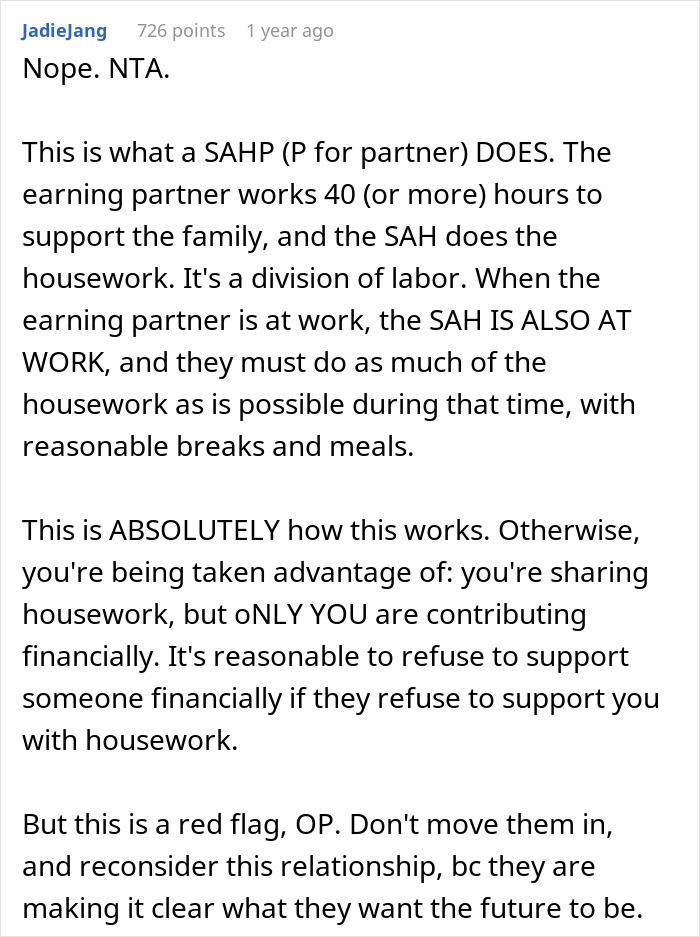



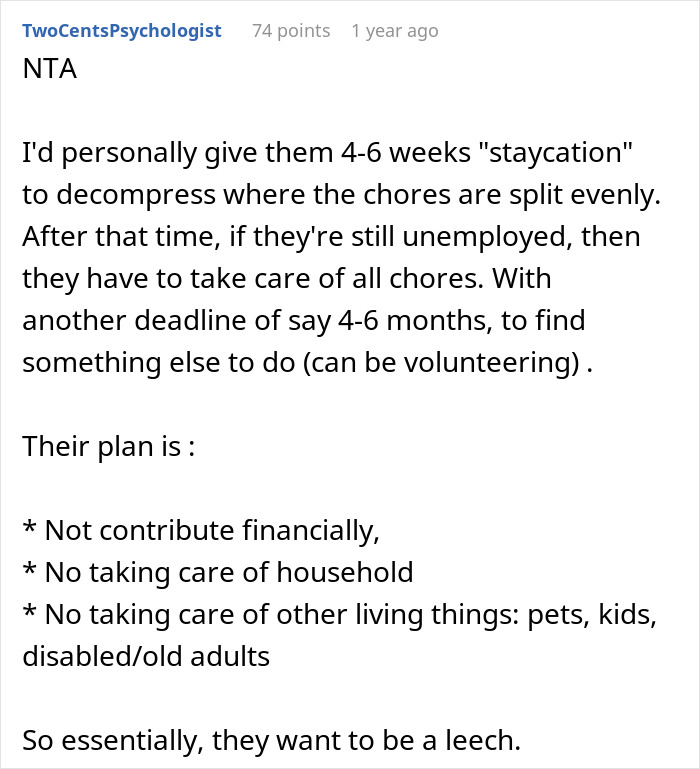



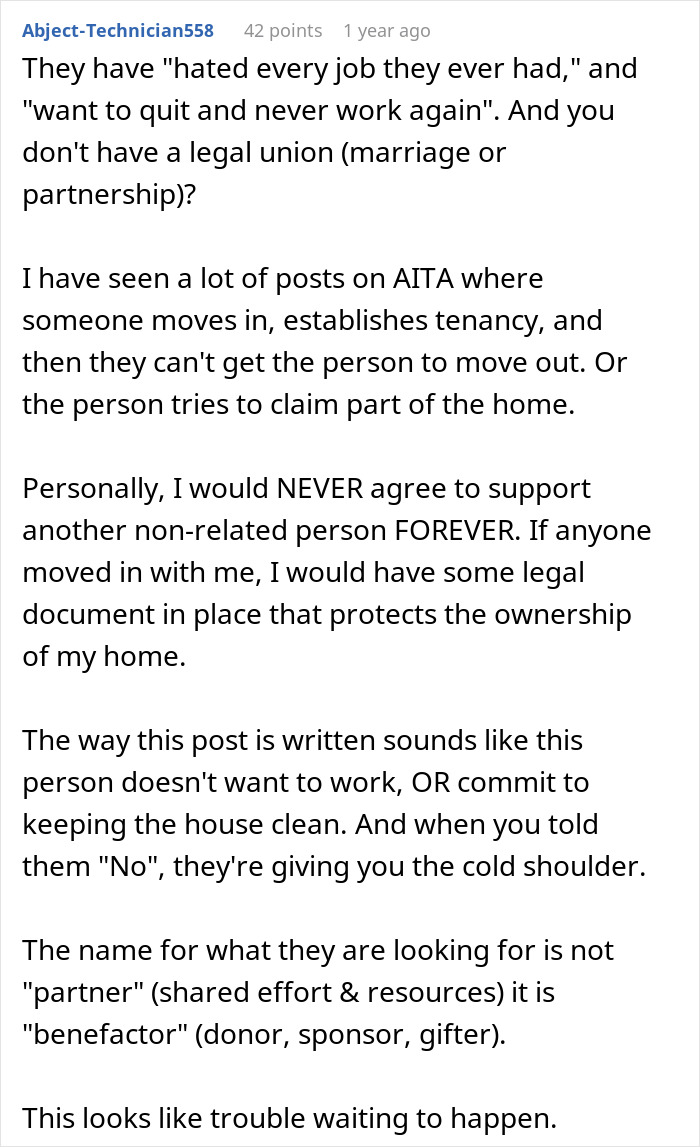
from Bored Panda https://ift.tt/7rEJVqn
ConversionConversion EmoticonEmoticon